SACRAMENTO – On Earth Day, California First Partner Jennifer Siebel Newsom convened stakeholders to explore opportunities to build upon California’s nation-leading Farm to School program, which connects local farmers and food to California students while creating a more sustainable and equitable food system for the betterment of the planet.
“California’s Farm to School program presents endless possibilities to address so many priority issue areas: the health and well-being of children, moving the food and agriculture industry towards regenerative practices to combat climate change, creating sustainable career pathways, bolstering local economies, and building partnership within communities,” said First Partner Jennifer Siebel Newsom. “Given the state’s unprecedented investments in universal school meals and unparalleled agricultural production, California is uniquely positioned to scale up Farm to School and create a healthier, more equitable future for ALL Californians.”
“California is laser-focused on creating healthier communities with our nation-leading Farm to School efforts – leveraging our unique position as the bread basket of the nation to bring more sustainable and healthy options to our schools,” said Governor Gavin Newsom. “We’re taking real action that makes a difference in the lives of thousands of California families, giving kids access to healthier meals that fight climate change and support our agricultural communities.”

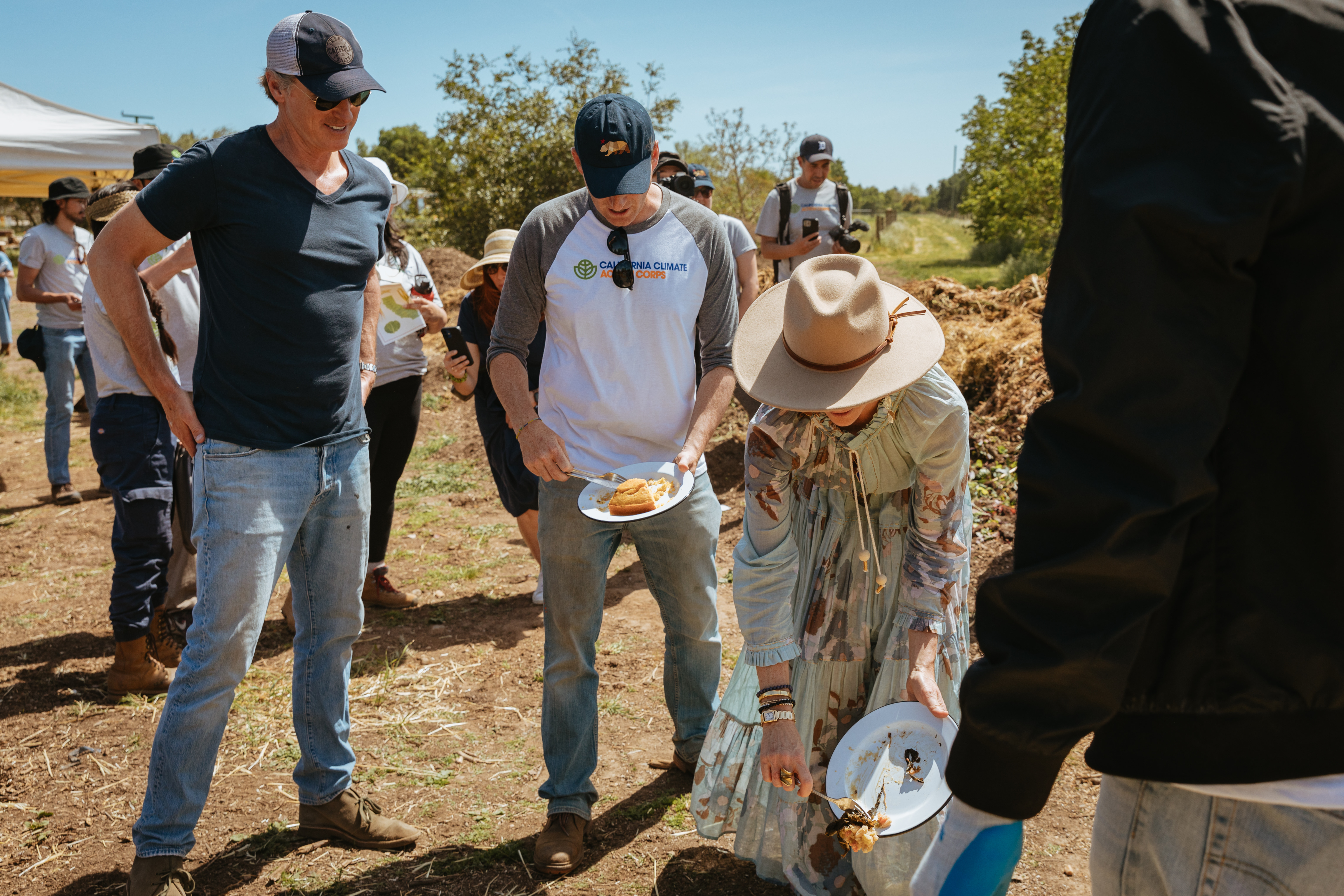
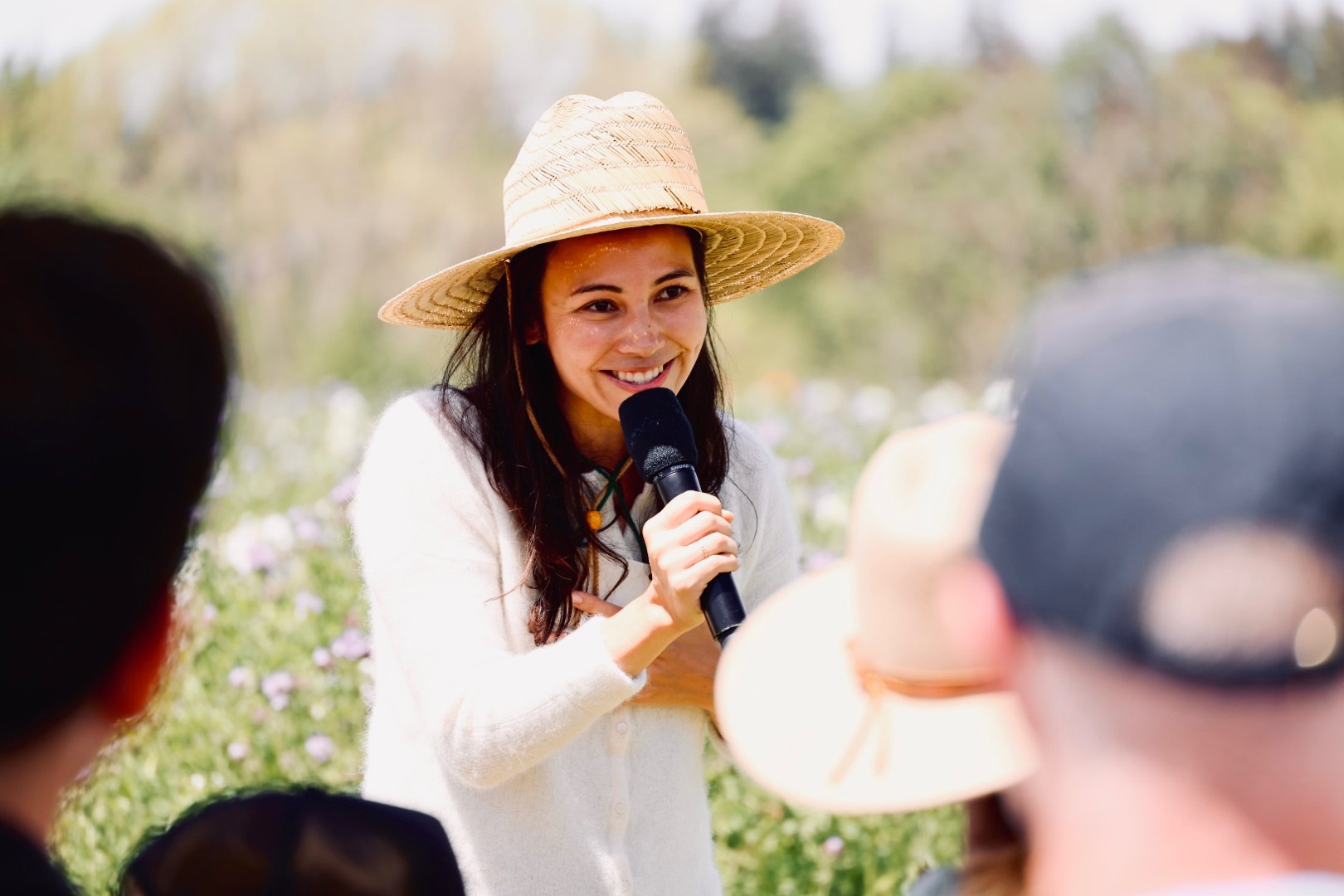
First Partner Siebel Newsom led the work – in partnership with the California Department of Food and Agriculture (CDFA) – to develop the innovative California Farm to School grant program. Farm to School works in tandem with California’s first-in-the-nation universal school meals initiative to ensure California’s two free school meals are also locally sourced, nutritious, and delicious.
Under the First Partner’s leadership and in partnership with CDFA, Farm to School has touched over 1.5 million students, 163 school districts and educational entities, over 50 farms and four food hubs.
“As we celebrate Earth Day 2023, we also celebrate the enthusiasm of California school leaders, students and farmers to embrace the farm to school movement and Farm to School Incubator Grant Program championed by First Partner Jennifer Siebel Newsom, Governor Newsom and the California Legislature,” said CDFA Secretary Karen Ross. “There is clear excitement from students about building lifelong relationships with nutritious food, and we’re just as excited to encourage an equitable, healthy, local food system that creates community around what we eat and celebrates the bounty of a healthy Earth through the curious minds and hands of children.”
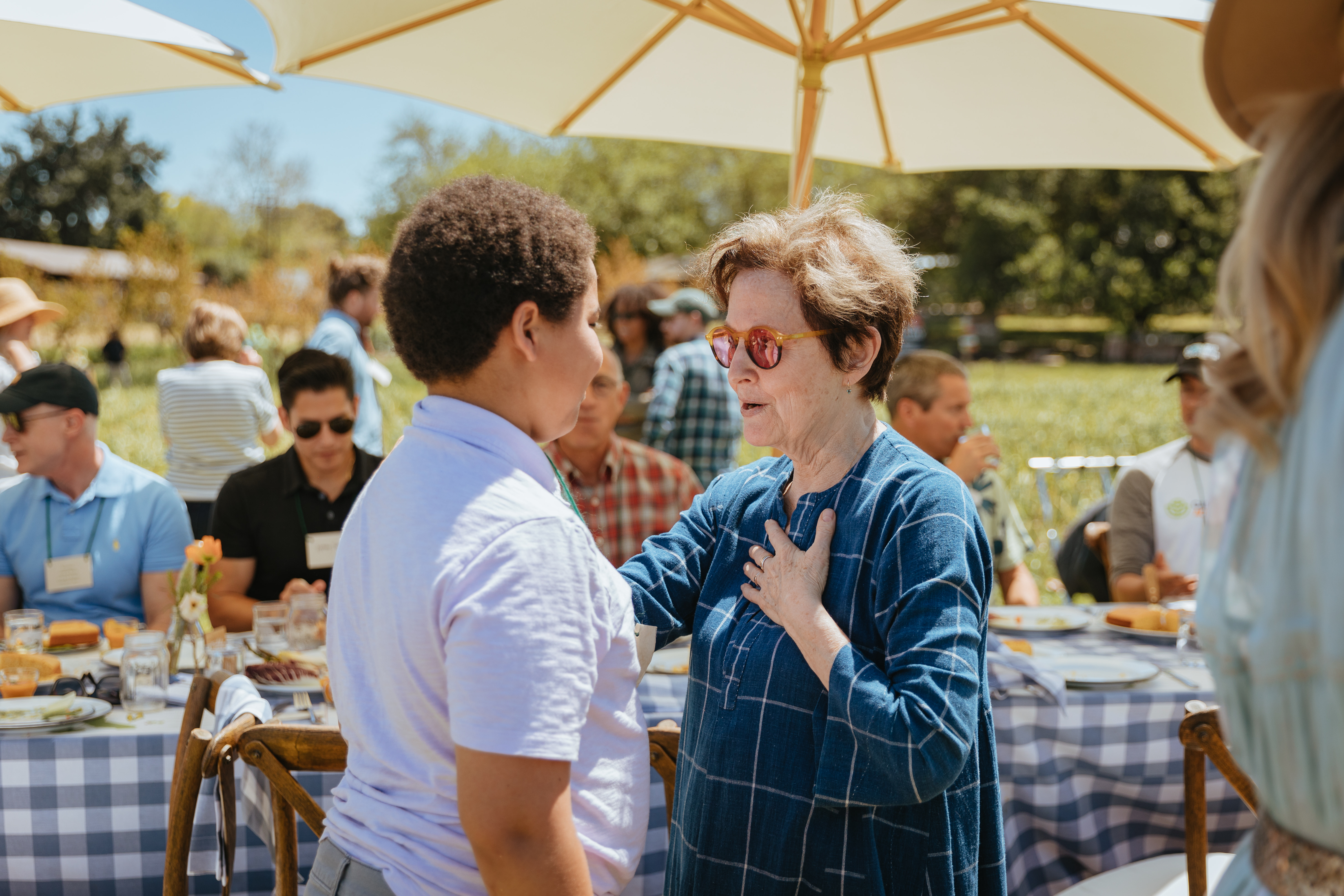
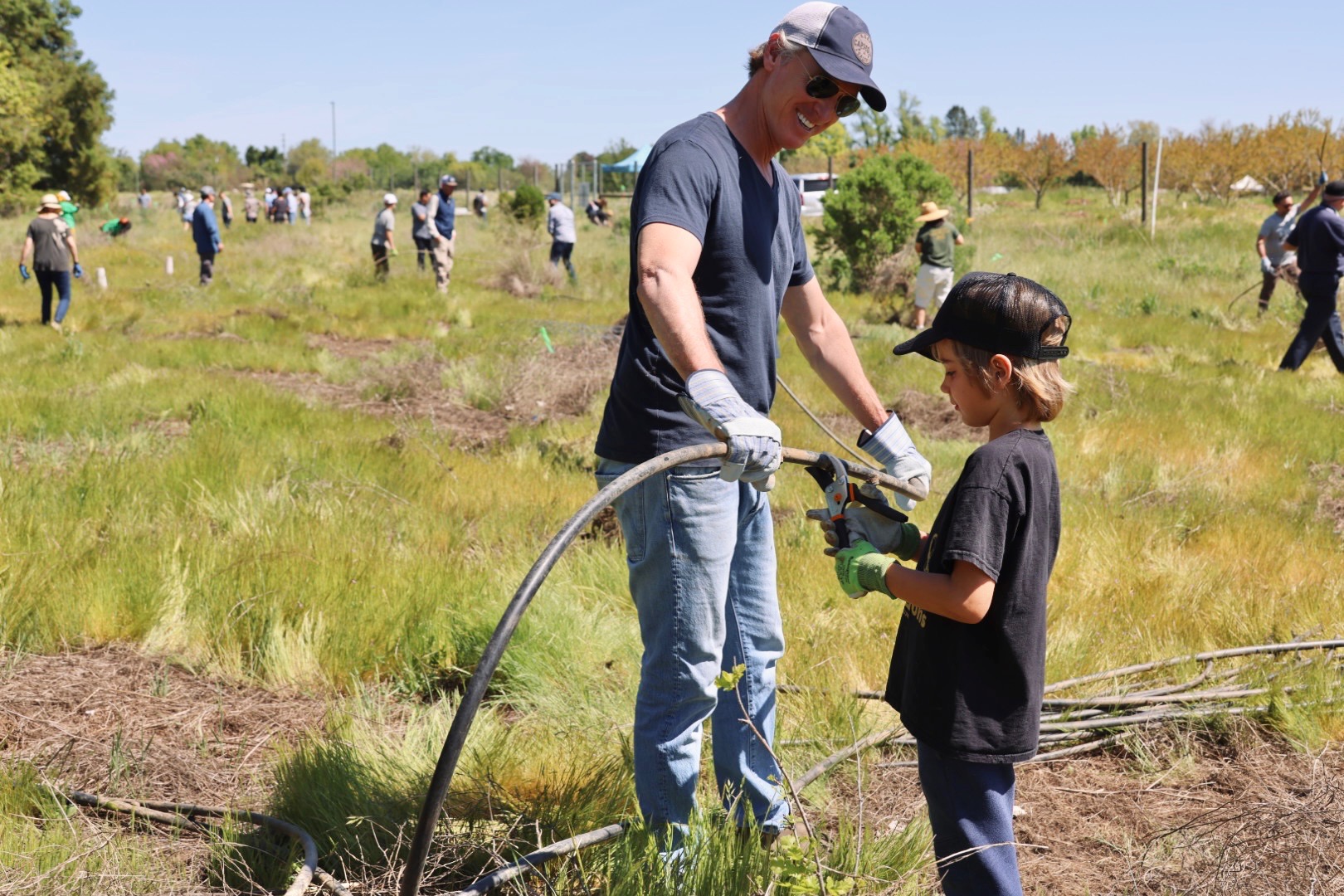
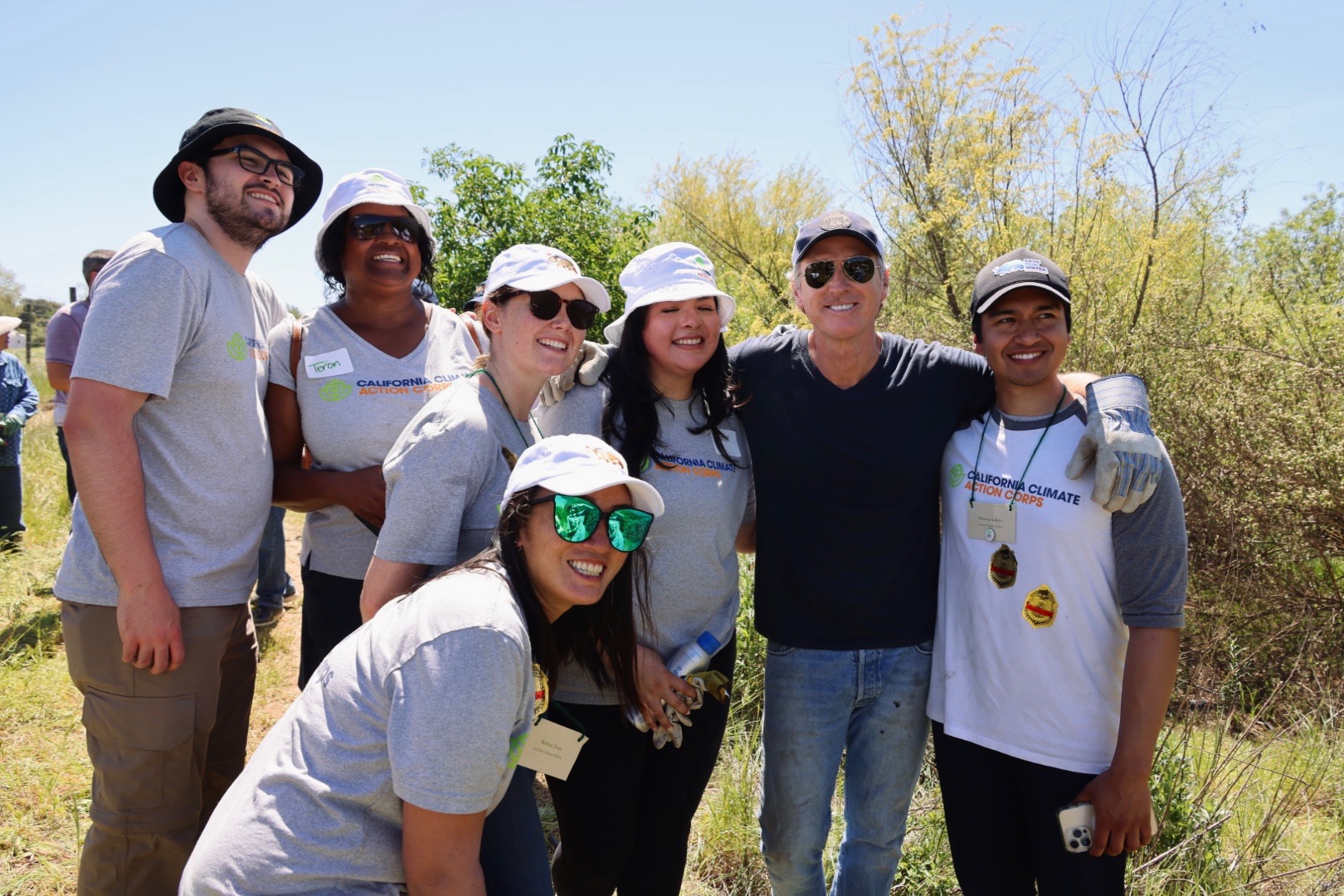
Through Farm to School, California school districts are developing new markets for California farmers and food producers – including small farmers, women, and people of color who have historically been left out of the massive school food marketplace – catalyzing broader food systems change towards greater climate-smart practices, and implementing educational programming that connects traditional curriculum with hands-on learning opportunities like cultivating school gardens, cooking classes, and farm field trips.
The Earth Day event was held at Soil Born Farms in Rancho Cordova, and included school superintendents, Farm to School program grantees, farmers, members of California Native communities, chefs, and labor representatives. The group came together for a creek clean up project led by California Chief Service Officer Josh Fryday and a lunch curated by renowned chef and longtime farm to school champion Alice Waters.
“Today we served side by side and came together to build community around solving climate change,” said Chief Service Officer Josh Fryday. “This event was a powerful representation of what California is building, as California Climate Action Corps Fellows work to connect communities and empower Californians to take climate action every day around the state,”
“If public schools purchased food from local organic regenerative farms and ranches, we could take care of the earth and eat healthy, ripe food at the same time,” said chef Alice Waters. “What a delicious solution!”
Earth Day event attendees connected on strategies and tangible ways to scale up the Farm to School program’s impact on students, communities, and the agricultural sector while minimizing negative climate impacts through innovative, community-centric school food procurement practices.
“Through the Farm to School program at my school, I’ve learned more about the benefits of fresh, organic produce and the importance of an organic school farm, and I’ve also gained a lot of confidence through my role as a Conscious Kitchen Ambassador,” said Joaquin Vincent-DaGrace, a sixth grader from El Sobrante. “I’m excited to be eating well and feeling good and helping my friends and family and community understand why this is so important for us all.”
“Farmer-Active Farm to School programming that centers small farmers makes it possible for farmers to keep farming forever,” said Anna Knight, a farmer at Old Grove Orange in Redlands. “Not only do kiddos have an opportunity to develop relationships with their farmers, they have a chance to experience mankind’s millennia-long collaboration with nature. If you love kiddos and you love farms, you love Farm to School.”
